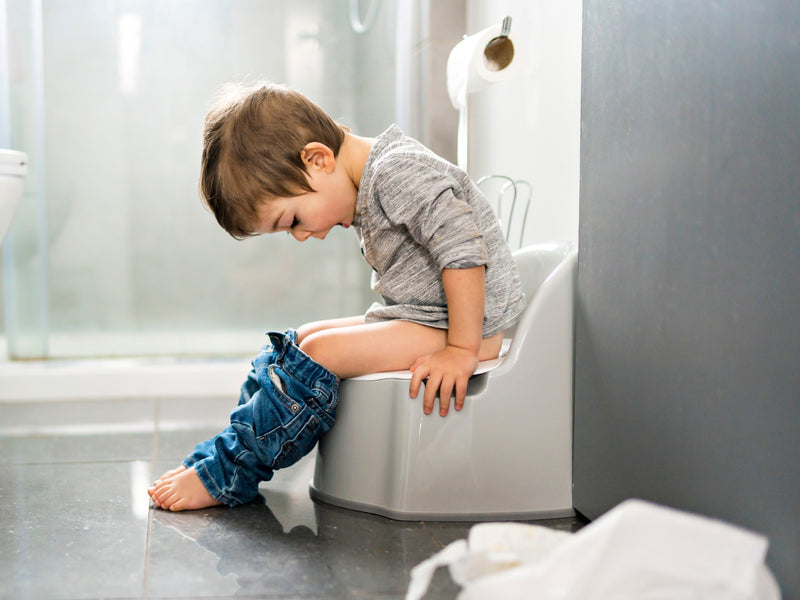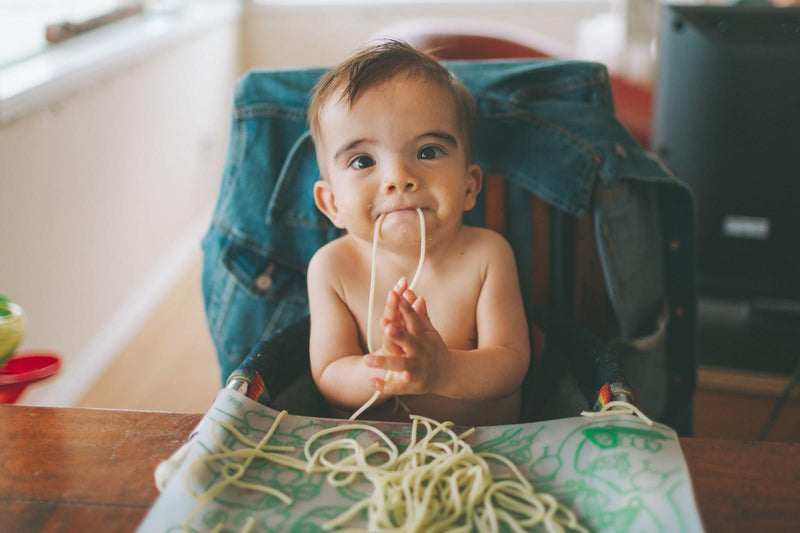
Beautiful, soft, and plump as they are, even the sweetest babies can give you a lot of unpleasant aromas. Changing diapers is not so much fun at first, but the good news is that you’ll become accustomed to the smell. With practice and time, you will see that it becomes simple and fun. In this article, we tell you how often you should change your baby's diaper and more!
How often should I change my baby’s diaper?
You should change your baby’s diaper as soon as you notice that the baby has used the diaper to release himself. This goes for disposable diapers just as much for reusable diapers!
Frequent changes at regular intervals guarantee the hygiene and cleanliness of the baby's genital parts, which are areas that are particularly prone to irritation; this is why diaper ointment and diaper cream exist for babies with sensitive skin. If instead, you realize that the baby has pooped, you have to change it immediately.
At night, an exception should be made to help the baby sleep peacefully. The diapers that are manufactured today have good resistance and last for hours in a very effective way, so if your baby allows it, take the opportunity to rest and recharge your batteries for the next day.
How to pick the correct diaper size for your baby
When to change a newborn’s baby diaper
You’ll have to change a newborn’s baby diaper very frequently during the first months. There are even babies who evacuate after each meal, thus dirtying even more than 10 diapers every day. However, over time, the needs and requirements usually stabilize, and the changes are reduced to about 5 per day.
In general, it is advisable to change the diaper at least once during the main phases of the day:
Morning
Afternoon
Evening
Before going to sleep
When to change cloth diapers
Most parents change cloth diapers every 2-3 hours, so you'll need a good reserve of diapers to survive the months. Keep in mind that they must be washed to avoid permanent stains and bad odors.
How do you wash cloth diapers?
What you need for nappy changing
These are the essentials you need for nappy changing:
A changing table
Baby wipes
Diapers
Lotions and creams
Clothing
The Ultimate Newborn Checklist
A changing table
It is the most basic item. You need a changing table that is smooth, stable, and not too high and not too low. This is essential so that the baby can feel comfortable and calm while having ample space to move. You should never leave your baby unattended on the changing table.
Baby Wipes
Wet baby wipes are useful to clean when doing baby diaper changes. Remember that a baby’s delicate skin can be easily irritated, so it is important not to overuse baby wipes or use those that are made with natural materials. You can find wet wipes on the market made with purified water and very few added ingredients that are perfect for a baby's delicate skin.
Diapers
You should place the absorbing diapers in a bag or basket placed right next to you, so that you always have them at hand when you need to change the baby.
Lotions and creams
Zinc oxide creams are highly recommended because they protect the baby's skin after the change. The moisture that builds up inside the diaper puts the baby at risk of developing irritation and dermatitis, especially if the diaper has been worn for too long.
Adding a layer of zinc oxide cream, diaper ointments or another diaper cream recommended by your pediatrician will help the damaged skin to regenerate and, above all, create a barrier between the skin and the diaper.
Clothing
You should also have a complete change of bodysuit and baby romper close to you and the changing table. This is because, in case it gets dirty while you change it, you will have everything at hand and you will not have to get tired or walk away from the changing table with the baby in your arms to get the clean clothes.
How to change a nappy
The moment of changing the baby's diaper is quite delicate and vulnerable since it involves contact with the most intimate parts of the newborn's body. Changing the diaper is also a time that helps develop trust and build a relationship with the baby.
Diaper change is a slow and delicate process; the person who performs it must be fully involved with the baby to notice hints of discomfort. The parent must guide all the movements and facilitate the conversation to adapt to the child, without forgetting what they have to do. During the diaper change, the baby should not receive something to play with.
With repetition, a newborn can understand when their parents are doing a diaper check. Over time, this will create a deep sense on the child's part that their caregivers are thinking about them throughout the day, and baby diaper changes will create a natural time for learning and stimulate language learning.
The mother must also adapt to the baby's movements, allowing him, if necessary, to roll on his stomach and then stand on the changing table if that is what he wants. Changing tables facilitate this freedom of movement and this results in a happy and engaged baby. If the child is emotionally satisfied at the time of changing the diaper, he will gradually internalize the full, calm, and kind attention that he receives in that room.
It must be taken into account that a slow and delicate treatment is a rich and rewarding moment in which it is possible to develop a relationship of two, which is key to achieving a secure attachment and favoring the beginning of that exploration in which the initiative comes from the child himself.
Here are the steps to change a baby's diaper:
Before you start, make sure you always have everything you need close at hand.
Change the baby in a warm and cozy environment.
Be sure to thoroughly clean the genital areas, including between the skin folds.
Use lukewarm water and a neutral detergent, avoiding soaps.
Dry the genital areas well, as humidity favors the appearance of dermatitis.
Apply a protective cream that your pediatrician has recommended.
Do not leave the baby unattended at any time.
Should I change a poopy diaper if my baby is sleeping?
It is not always necessary to change a baby's diaper at night, especially if it’s not often that the baby sleeps through the night. Waking your baby at night is never a good idea. However, if the diaper leaks or the baby has pooped, you should prevent it from soiling the entire bed.
If your baby is bothered by a dirty diaper, the baby will let you know by crying or whimpering. You can take advantage of the time of night feedings to do a diaper check and change it if necessary.
How to get your baby to sleep all night
How long can a baby stay in a wet diaper?
For questions of hygiene and health, it is not advisable to leave your baby with a wet or soiled diaper for more than 3 hours.
This is because urine can change the pH levels of the skin and this makes it easy for bacteria and fungi to appear. In addition, the more waterproof a diaper is, the less air will circulate, and this will result in a hot and humid environment, ideal for bacteria and fungi to cause dermatitis.
This is one of the reasons why it is more recommended that newborn babies use cloth diapers, as they make them less likely to suffer from diaper rash. Because the outer layer of cloth diapers is waterproof, it allows air to circulate.
Should I wipe my baby after every diaper change?
You should wipe your baby with a lukewarm soft cloth after every diaper change. This will prevent any diaper rash and ensure good hygiene. As mentioned before, baby wipes should be reserved for poopy diapers only. If the soiled diaper only has pee, the lukewarm water soft cloth will do the job.
Browse our collection of diaper covers




